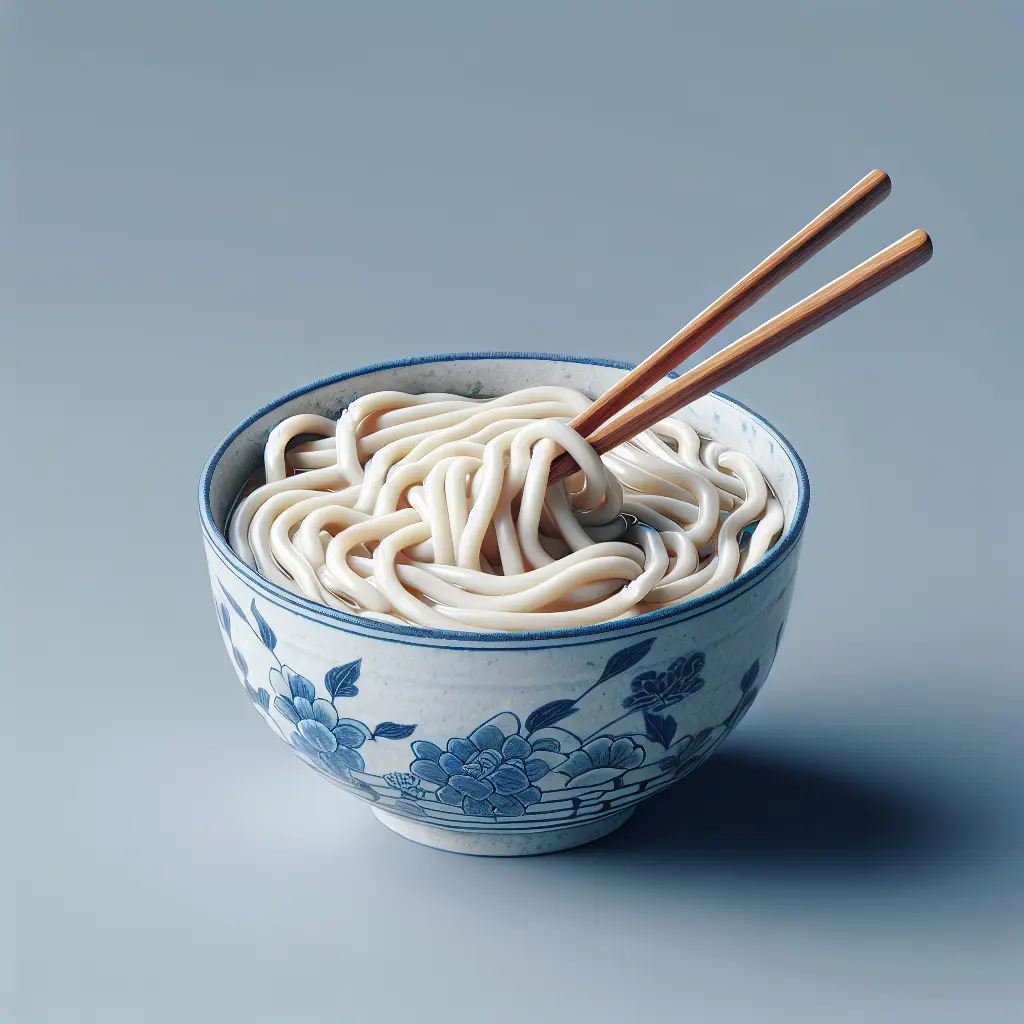Udon: A Comprehensive Guide to the Versatile Japanese Noodle
Udon is a thick, white noodle made from wheat flour and water, and it is a staple of Japanese cuisine. It is often served in a hot broth with various toppings, such as tempura, tofu, and vegetables. Udon can also be served cold, in a salad or with a dipping sauce.
Nutritional Value
Udon is a good source of carbohydrates, providing 42 grams per cup. It is also a good source of fiber, providing 1.8 grams per cup. Udon is low in fat and protein, with 0.9 grams of fat and 7.3 grams of protein per cup. It is also a low-sugar food, with only 1.5 grams of sugar per cup.
Health Benefits
Udon is a good source of complex carbohydrates, which are slowly digested and provide sustained energy. The fiber in udon can help to regulate blood sugar levels and promote digestive health. Udon is also a low-fat and low-calorie food, making it a good choice for people who are trying to lose weight or maintain a healthy weight.
Culinary Uses
Udon is a versatile noodle that can be used in a variety of dishes. It is often served in a hot broth with various toppings, such as tempura, tofu, and vegetables. Udon can also be served cold, in a salad or with a dipping sauce. Udon is also a popular ingredient in stir-fries and other noodle dishes.
Popular Udon Dishes
- Kake udon: Udon noodles served in a hot broth with a simple soy sauce-based sauce.
- Tempura udon: Udon noodles served in a hot broth with tempura (fried seafood or vegetables).
- Kitsune udon: Udon noodles served in a hot broth with a fried tofu pocket.
- Nabeyaki udon: Udon noodles served in a hot pot with various toppings, such as seafood, vegetables, and eggs.
- Yakisoba: Udon noodles stir-fried with vegetables and meat or seafood.
Tips for Cooking Udon
- Use a large pot of boiling water to cook the udon noodles. This will help to prevent the noodles from sticking together.
- Cook the udon noodles for the amount of time specified on the package. Overcooking the noodles will make them mushy.
- Rinse the udon noodles with cold water after cooking. This will help to remove the excess starch and prevent the noodles from sticking together.
- Serve the udon noodles immediately. Udon noodles are best when served fresh.
Conclusion
Udon is a versatile and delicious noodle that can be used in a variety of dishes. It is a good source of carbohydrates, fiber, and other nutrients. Udon can be served hot or cold, and it is a popular ingredient in Japanese cuisine.
How many calories are in Udon?
Each 1 cup of Udon contains 208 calories.
Udon Nutritional Information
| Nutrient | Amount per 1 cup (276g) |
|---|---|
| Calories | 208 Calories |
| Protein | 7.3g |
| Fat | 0.9g |
| Saturated Fat | 0.2g |
| Cholesterol | 0mg |
| Carbohydrates | 42g |
| Dietary Fiber | 1.8g |
| Sugar | 1.5g |
| Sodium | 0.012mg |
| Potassium | 0.1248mg |
| Calcium | 0.018mg |
| Iron | 0.0018mg |
